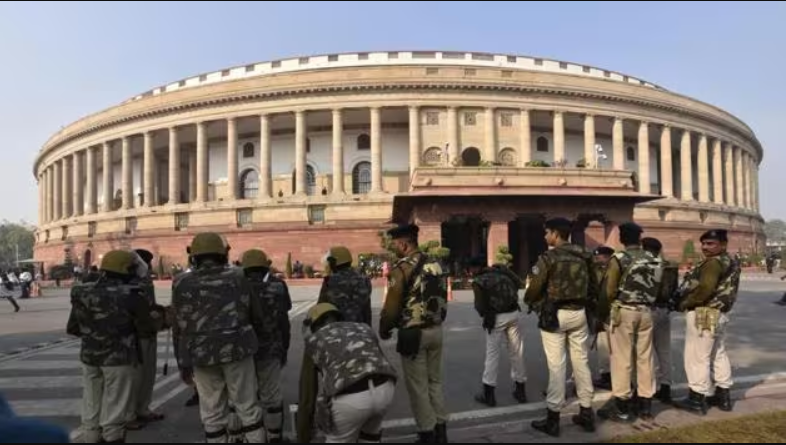On the 22nd anniversary of the Parliament Attack 2001, a look back at how Pakistan-based terrorist groups struck at the heart of Indian democracy.
Prime Minister Narendra Modi paid respect to the security forces who were killed during the Parliament Attack 2001. The attack killed nine innocent people and injured 18. Furthermore, it struck at the heart of the Indian state and democracy, at one of the country’s most guarded areas. Here’s how the attack happened, who was behind it, and what happened after.
ALSO READ: Soft Attack On Indian Parliament And Sync With 2001 Parliament Attack
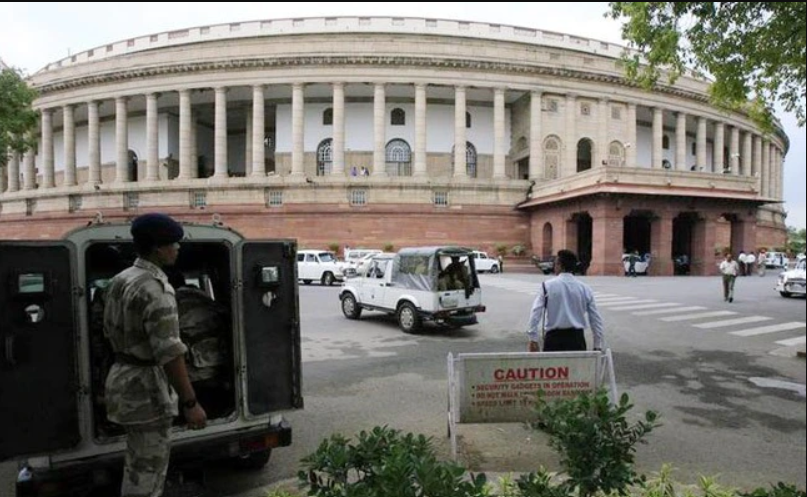
2001 what happened following the assault
2001 What happened following the Five terrorists entered Parliament House Complex around 11:40 a.m. on December 13, 2001, in an Ambassador sedan equipped with a red light and a forged Home Ministry badge on the windshield.
2001 What happened following the as the automobile approached Building Gate No. 12, one of the Parliament House Watch and Ward staff grew suspicious. He forced it to turn around, at which point it collided with then-Vice President Krishan Kant’s vehicle, and the terrorists jumped out and began fire.
2001 What happened following the by this time, an alarm had been sounded, and all of the building’s gates had been closed. A 30-minute-long gunfight followed. All five terrorists, as well as eight security personnel and a gardener, were slain. A total of 15 persons were hurt. The approximately 100 ministers and MPs in Parliament at the time were unharmed.

2001 Parliament attack what happened following the Pakistan is to blame
2001 What happened following the “It is now clear that the terrorist attack on Parliament House was carried out jointly by Pakistan-based and supported terrorist outfits, namely Lashkar-e-Taiba and Jaish-e-Mohammad,” then-Home Minister LK Advani stated in Lok Sabha.
ALSO READ: An Eyewitness Tells What Transpired In Lok Sabha During The Parliament Attack
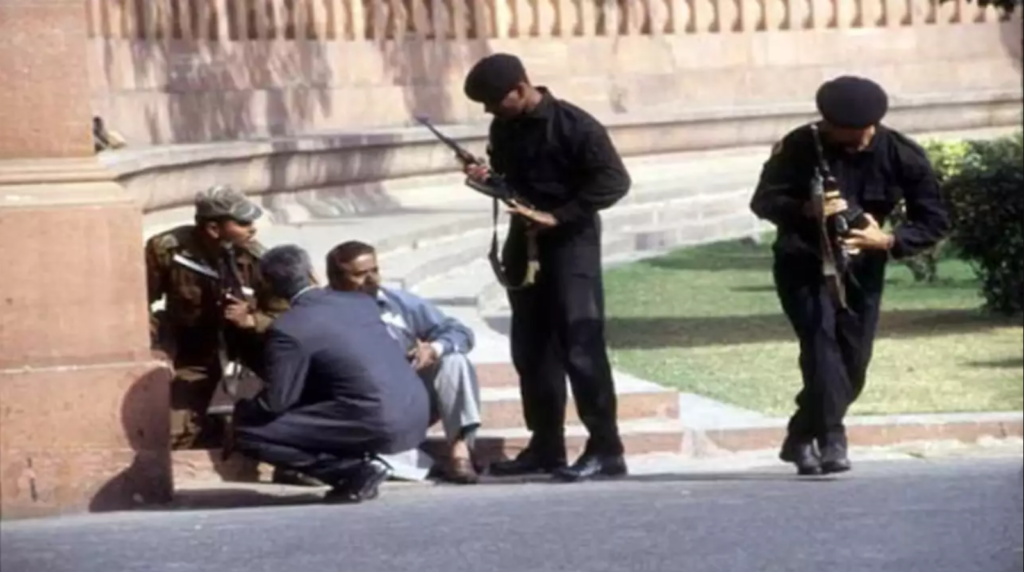
Advani went on to say of the Pakistani state’s involvement, “These two organizations are known to derive their support and patronage from Pak ISI.” According to the police investigation thus far, all five terrorists who comprised the suicide squad were Pakistani nationals. They were all slain on the spot, and their Indian friends have since been apprehended and arrested.”
“Last week’s attack on Parliament is undoubtedly the most audacious, and also the most alarming, act of terrorism in the nearly two-decades-long history of Pakistan-sponsored terrorism in India,” he said.
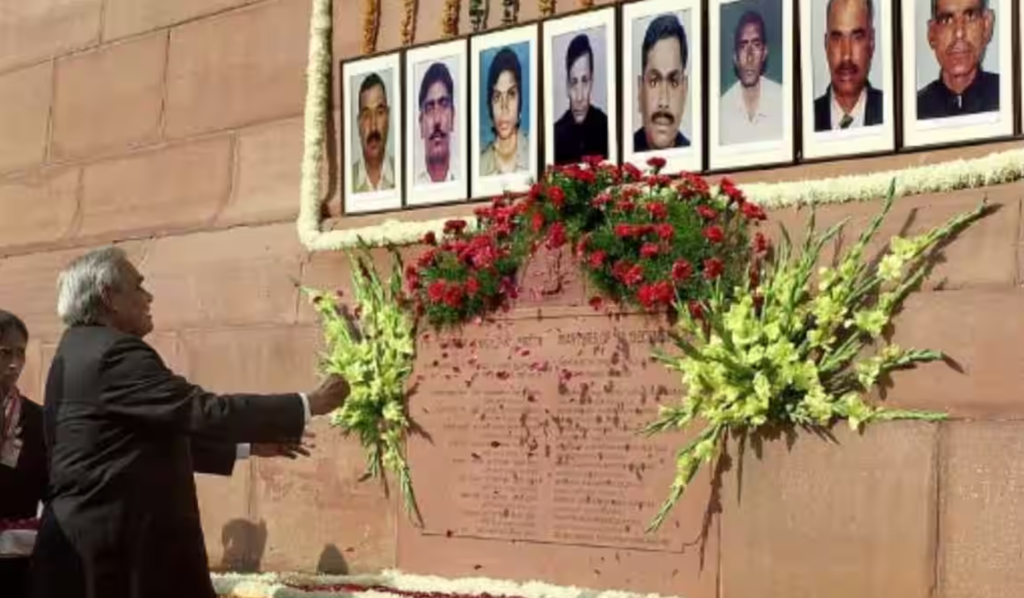
Afzal Guru and others have been charged with conspiracy
On December 13, police filed a FIR documenting an armed terrorist attack. Within a few days, the Delhi Police Special Cell apprehended four people who were traced down using leads from the automobile utilized and cellphone data.
Mohammad Afzal Guru, a former Jammu Kashmir Liberation Front (JKLF) fighter who surrendered in 1994, his cousin Shaukat Husain Guru, Shaukat’s wife Afsan Guru, and SAR Geelani, an Arabic instructor at Delhi University, were among those arrested.
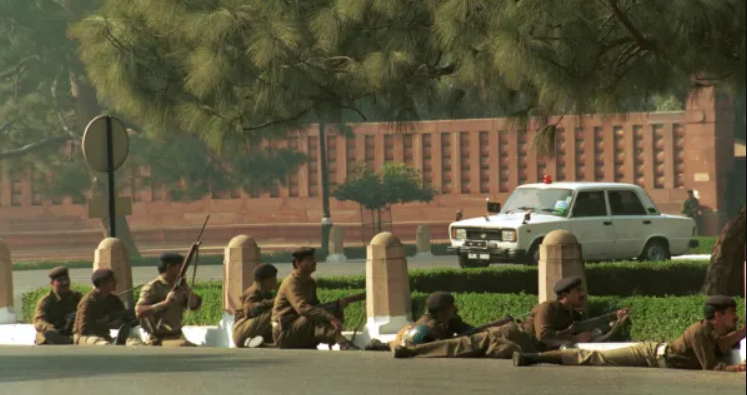
The trial court acquitted Afsan but sentenced Geelani, Shaukat, and Afzal to death. Geelani was acquitted on appeal in 2003, and Shaukat’s sentence was shortened to ten years in prison in 2005 by the Supreme Court.
However, Afzal Guru obtained no reprieve from the courts, with the Supreme Court upholding his death sentence in 2005. The Supreme Court ordered Afzal Guru’s execution on September 26, 2006.
On February 9, 2013, he was hung at Tihar Jail, six days after then-President Pranab Mukherjee denied his wife Tabassum Guru’s mercy petition. His ashes were interred within the jail grounds.
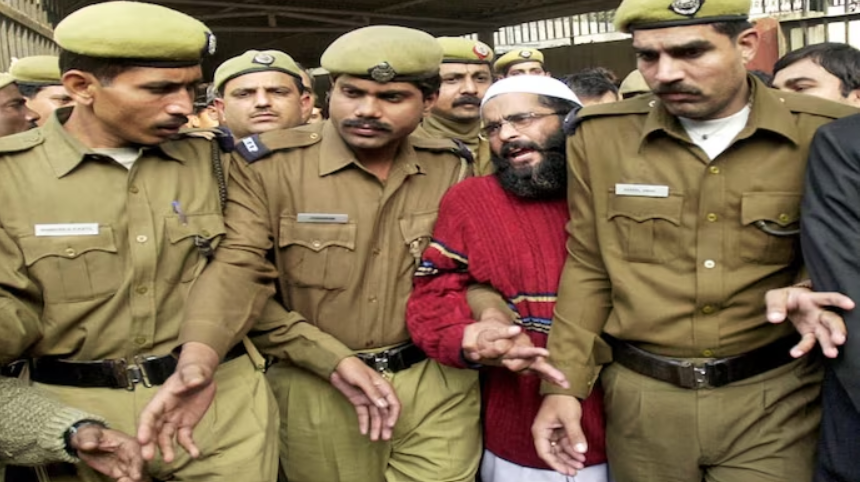

Click here, to check HNN’s latest post.
ALSO READ: India’s Offer To Host COP-33: A Bold And Generous Gesture For Climate Action
Image Source: Google, Instagram







